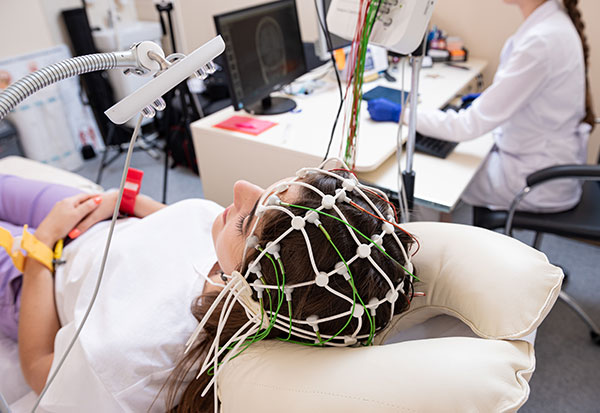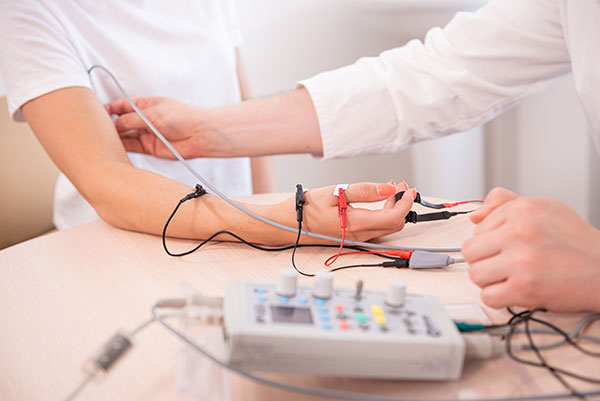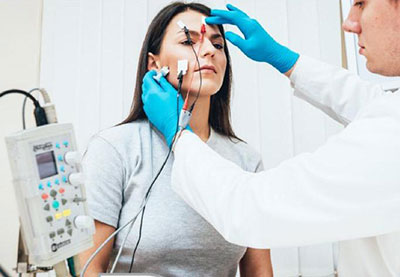NEUROLOGY
NEUROLOGY is a medical specialty dealing with disorders of the nervous system. Specifically, it deals with the diagnosis and treatment of all categories of disease involving the central, peripheral, and autonomic nervous systems, including their coverings, blood vessels, and all effector tissue, such as muscle.

Electroencephalogram (EEG)
An electroencephalogram (EEG) is a test that measures and records the electrical activity of your brain.
Electromyogram (EMG)
An electromyogram (EMG) measures the electrical activity of muscles at rest and during contraction. Nerve conduction studies measure how well and how fast the nerves can send electrical signals. Nerves control the muscles in the body by electrical signals (impulses), and these impulses make the muscles react in specific ways. Nerve and muscle disorders cause the muscles to react in abnormal ways.


Nerve Conduction Velocity (NCV)
A nerve conduction velocity (NCV) test also called a Nerve Conduction Study (NCS), measures how fast an electrical impulse moves through your nerve. NCV can identify nerve damage. During the test, your nerve is stimulated, usually with electrode patches attached to your skin.
There are three types of NCS - motor, sensory and mixed. Because of differing technical aspects in their performance, these must be performed sequentially, rather than simultaneously, whenever the same mixed nerve is being assessed. The NCV is done by a neurologist. This is a doctor who specializes in brain and nerve disorders. A technologist may also do some parts of the test.
 No. C-2017-0035
No. C-2017-0035 No. M-0072
No. M-0072